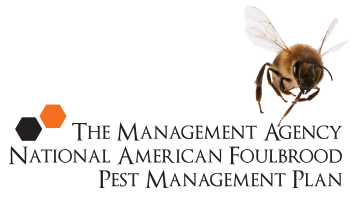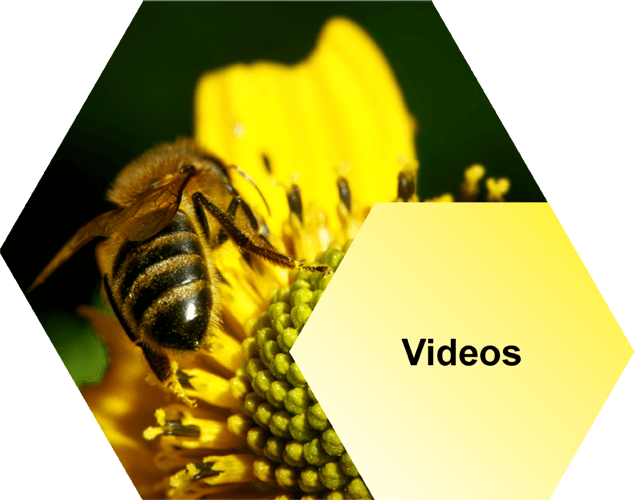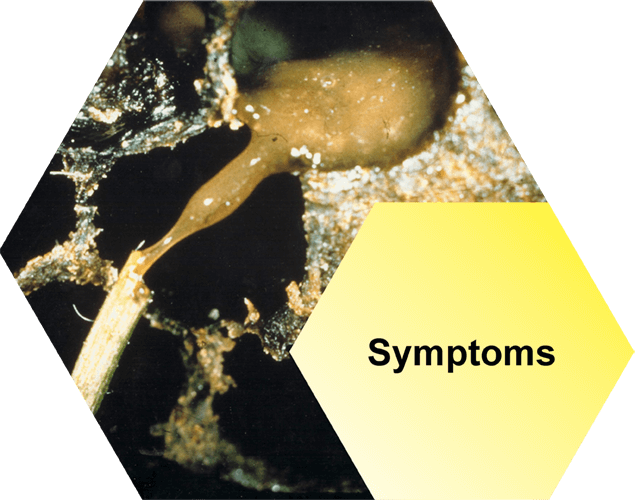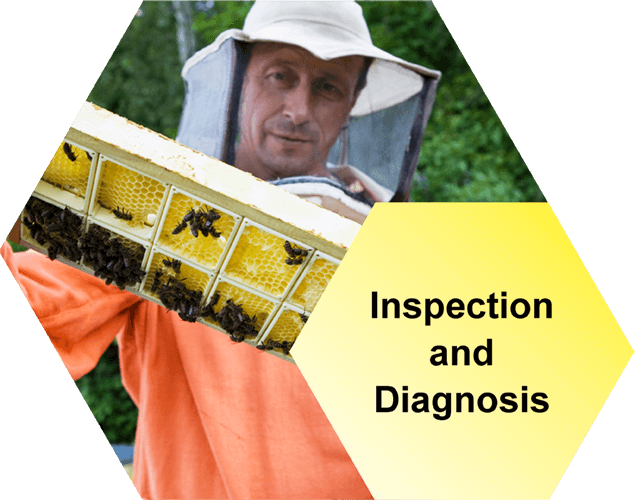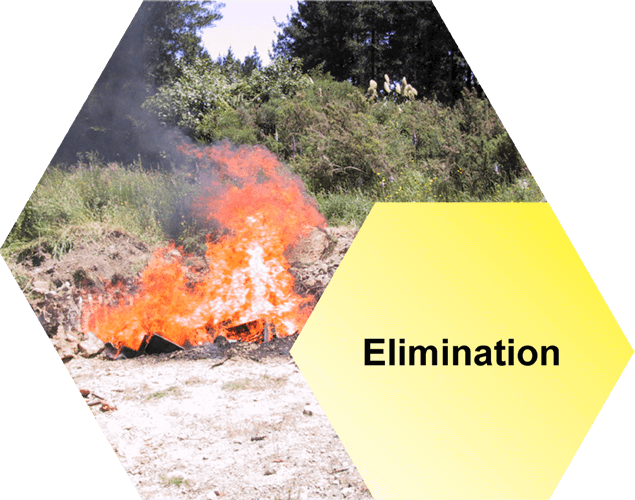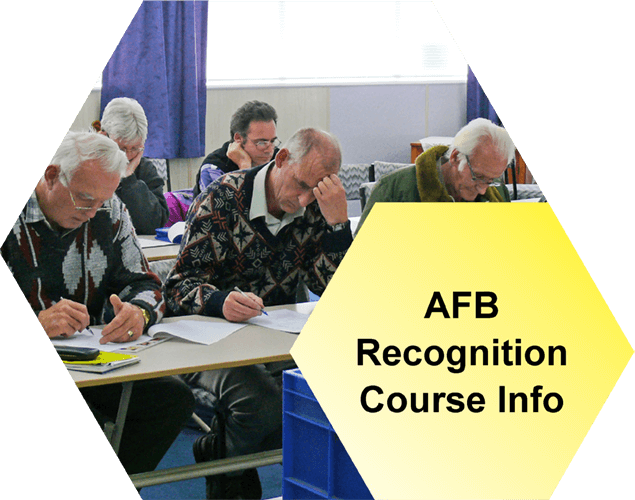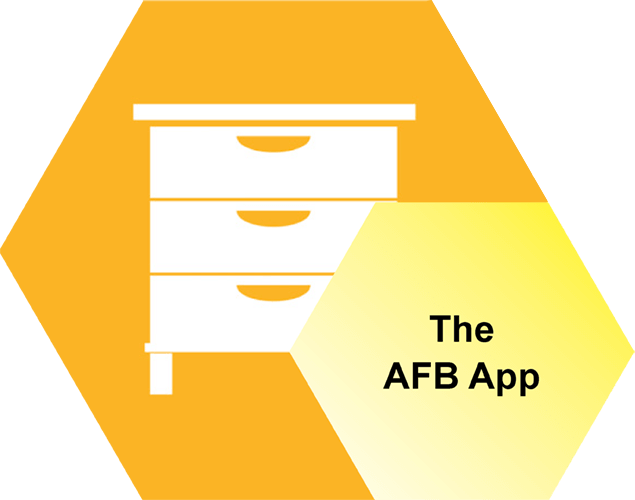Identifying scale
What is scale?
Scale is the dried remains of diseased brood that lie flat along the lower wall of the cell. Identifying scale is a very useful technique for diagnosing AFB in the field, particularly in hives that have died out either because of the disease or for some other reason.
The problem with identifying scale is that because the remains are flat and lie along the lower wall of the cell, they are not easy to see. The difficulty is compounded as cells are not actually perpendicular to the face of the comb. Cells actually slope upwards on about a 9° angle. Scale can also be very difficult to see in old black comb as they are usually dark brown or black.
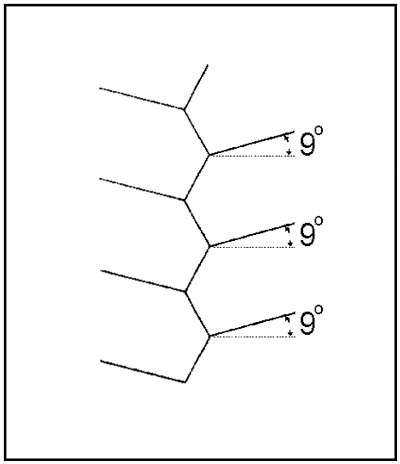
If the frame is held out directly in front of you, the scale is not usually visible because of the slope of the cells. On the other hand, if the face of the frame is turned too much on an angle, the scale is also not visible because the slope of the cell is very slight (Fig. 30).
Being able to identify AFB scale in a hive can be a useful way of identifying infected colonies even after they have died.
How to best look for scale
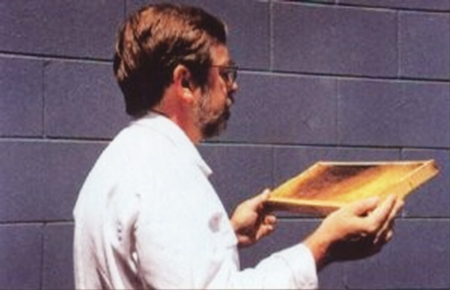
To best see scale, the frame should be held by the lugs at either end of the top bar, and turned upside down (Fig.31).
The sun, or a source of artificial light, should be positioned behind the observer, so that the largest amount of available light shines into the cells. The hands are then twisted at the wrists slightly downwards, rotating the face of the comb so that the largest surface of the lower wall of the cells is visible.
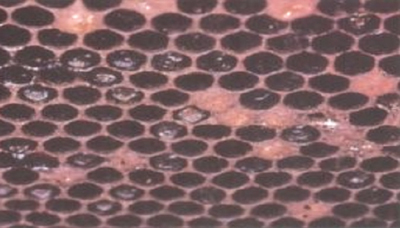
The lower walls of the cells are then searched for a distinctive curved shape (Fig. 32). The shape resembles the rounded end of a bullet, and is identical to the head end of a sunken, moist, diseased larva and pupae. AFB scale is the fully dried down remains of diseased larvae or pupae.
To better see the cell contents, the sharp corner of a hive tool can be used to carefully trim down the top side of the cell entrance. This will expose the bottom wall of the cell where the scale is always located.
If you can't see scale, look for pupal tongue
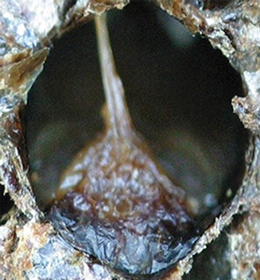
Sometimes comb in dead-out hives can be so degraded by mould, pollen mites or weathering that it is almost impossible to see the outlines of larval scale in the cells. In such cases, a thorough search of all the combs should be made in an effort to find the thin, hair-like structure that is the remains of the tongue in pupal scale (Fig. 17). The pupal tongue can be regarded as a definitive field diagnosis for AFB, since no other disease will produce this symptom
American foulbrood scale cannot be removed from cells without breaking apart the cell wall. The pupal tongue, however, is very fragile, and can easily be broken off with the sharp corner of a hive tool.
Take the AFB 5 minute quiz
How well do you know what you need to know about AFB and beekeeping? Take our short quiz and find out.
Videos
Our videos cover everything from your legal obligations to how to recognise AFB, collecting cell and bee samples and more.
Symptoms
There’s a lot of good information here, telling you everything you need to know about recognising AFB: the visual symptoms, smell of AFB and more.
Inspection and Diagnosis
Successfully eliminate AFB by telling the difference between symptoms of AFB and other brood diseases in the hive. We tell you the best methods for inspecting your hives.
The Law
New Zealand beekeepers have a number of legal obligations that must be met regarding AFB disease. Read the shortened list in summary, here.
Elimination
Most hives become infected because bees, honey or equipment have been put into a hive from another hive that is infected with AFB. Lower your chances of an AFB infection by reading this section.
AFB Recognition Course Info
Find out when the next AFB Recognition and Competency Courses, or Refresher Courses are available. These are held throughout the year in various New Zealand locations across the South Island and North Island.
The AFB App
Follow the link below to open the App. Once open to save to your device you need to bookmark the URL on your phone so you can find it easily again. Please click here to open.
